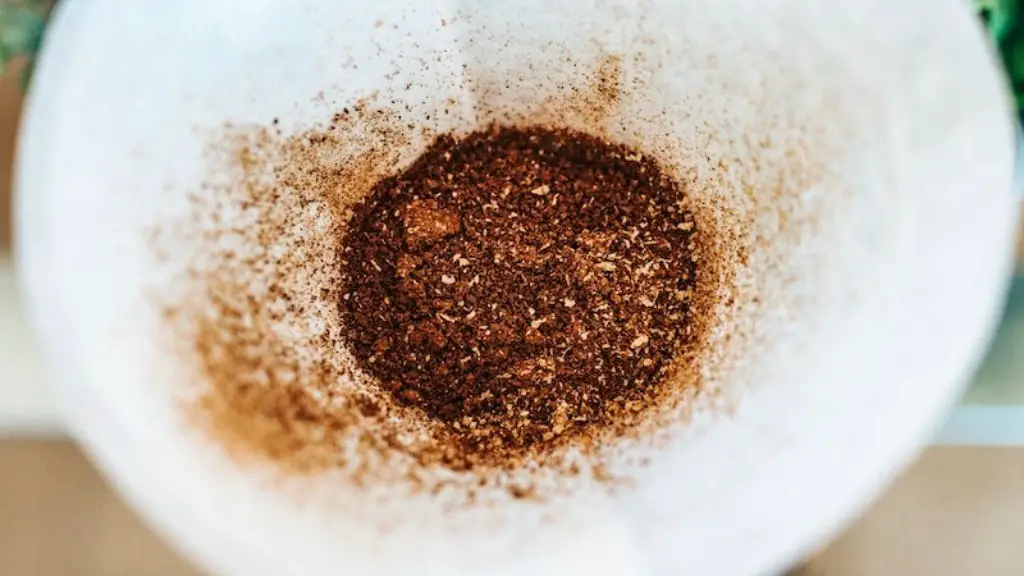In recent years, coffee has become one of the most popular beverages in the world. From coffee-infused beverages such as lattes and cappuccinos to regular coffee brewed at home, it is everywhere. But how does drinking coffee affect your body? Does it provide health benefits or just make you addicted? This article seeks to answer these questions by examining the science and examining research showing the effects of coffee on the body.
Some studies have found that coffee can provide some positive benefits. A 2017 review in the journal Nutrients found that regular coffee intake was associated with a lower risk of inflammation, diabetes, Parkinson’s disease, heart disease, cancer, and other health problems. Additionally, the review pointed out that coffee can enhance physical performance, alertness, and attention.
However, there are also some potential downsides. Caffeine can cause headaches, irritability, restlessness, and jitteriness. Some people are more sensitive to caffeine and may need to limit their intake. In addition, coffee can cause some digestive issues, such as indigestion and heartburn. Furthermore, some research has linked excessive amounts of coffee to insomnia.
Ultimately, it is up to an individual to decide if the potential benefits and risks of drinking coffee balance each other out. Everyone reacts differently to caffeine, so it’s important to monitor one’s consumption and pay attention to how it makes you feel. Additionally, understanding the different types of coffee and their caffeine content can help you make informed choices. For instance, decaf coffee may be a better option if you are particularly sensitive to caffeine.
What Are The Nutritional Values?
Coffee is not nutrient-rich and contains relatively few vitamins and minerals. However, it does contain some small amounts of manganese, potassium, magnesium, and niacin (vitamin B3). It also contains a small amount of protein, and some studies have found that it can help maintain a healthy weight through its metabolism-boosting effects. Some coffees, such as light and dark roasts, contain higher amounts of antioxidants than others, providing additional potential health benefits.
In terms of added ingredients, many people opt for creamers, milk, and sugar added to their coffee. While these can add pleasant flavors and textures, they can also increase fat and calorie intake, so it’s important to monitor how much you are adding. Additionally, make sure that your coffee is brewed using clean water, as coffee can take on the flavor of the water.
What Is The Recommended Intake?
The amount of coffee that you drink is largely a personal choice and may depend on your sensitivity to caffeine or other ingredients. According to the American Heart Association, up to three 8-ounce cups of coffee a day may be part of a healthy diet. For pregnant or breastfeeding women, it is generally recommended to limit caffeine intake to 200 mg or less per day.
In general, it is important to note that coffee is a stimulant and can have a range of effects on your body, depending on the amount you drink. Too much coffee can lead to restlessness, headaches, difficulty sleeping, and other adverse effects.
Is Decaffeinated Coffee Healthier?
Decaffeinated coffee does contain a small amount of caffeine but is generally considered to be lower in caffeine than regular coffee. Decaffeinated coffee also tends to have a lower acidity level than regular coffee and can be gentler on the stomach. However, there is some debate about whether decaffeinated coffee still has the same health benefits as regular coffee.
One 2015 study found that decaffeinated coffee had a comparable effect on glucose and insulin levels as regular coffee. However, the study also noted that the effects were weaker, so it may not provide the same health benefits. Additionally, some decaffeinated coffees have added sugar, which can increase calorie intake and lead to other health issues. Because of this, it is important to check labels before purchasing to make sure that there is no added sugar.
Are There Alternatives To Coffee?
Coffee is not the only beverage that can provide a boost of energy or a pleasant flavor. If you are looking for an alternative to coffee, there are many other beverages that can provide a similar effect. For example, green tea has considerably less caffeine than coffee but can still provide a caffeine boost and is also rich in antioxidants.
Other alternatives include matcha, which is a fine powder made from green tea leaves and is high in antioxidants, and yerba mate, which is made from the leaves of the holly tree and has a unique flavor. Additionally, some people opt for energy drinks or herbal teas to give themselves a boost.
What Are The Effects Of Drinking Too Much Coffee?
Although moderate amounts of coffee can be part of a healthy diet, too much can lead to adverse effects. Studies have found that drinking eight or more cups of coffee a day can lead to restlessness, headaches, difficulty sleeping, increased heart rate, and other issues. Additionally, too much caffeine can make you dehydrated, as it is a diuretic and can make you lose more water than you take in.
Consuming more than 500 mg of caffeine a day can also lead to more serious health issues such as anxiety and palpitations. It is generally recommended that you not consume more than 400 mg of caffeine a day. Additionally, it is recommended that pregnant and breastfeeding women limit their intake to 200 mg or less per day.
Can Coffee Help You Lose Weight?
One of the potential benefits of drinking coffee is that it can speed up your metabolism, making it easier to burn calories. Additionally, some studies have found that coffee can increase fat burning and reduce appetite. However, it is important to note that these effects vary from person to person and drinking coffee alone will not lead to lasting weight loss. If used in conjunction with a healthy diet and exercise, however, it may be beneficial.
It is also important to note that if you add creamers, sugar, and other ingredients to your coffee, the calorie content will increase. Additionally, if you opt for more sugary coffee-shop beverages, such as mochas and cappuccinos, the calorie content will be much higher than that of regular coffees.
What Else Should I Know About Coffee?
One of the most important things to remember about coffee is that it is a stimulant and can interact with other medications, such as certain antidepressants and blood pressure medications. Additionally, if you are sensitive to caffeine or other ingredients, it is important to monitor your intake and experiment with decaffeinated coffee or other caffeine-free alternatives.
Ultimately, drinking coffee is a personal choice that can have positive or negative effects, depending on the amount you drink, your sensitivity to caffeine and other ingredients, and your overall health. Our bodies all react differently to coffee, so it is important to pay attention to how it makes you feel and make sure that your intake is within recommended limits.




